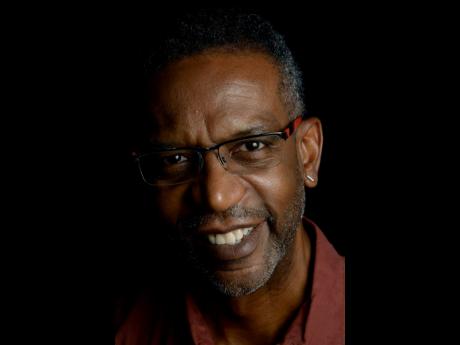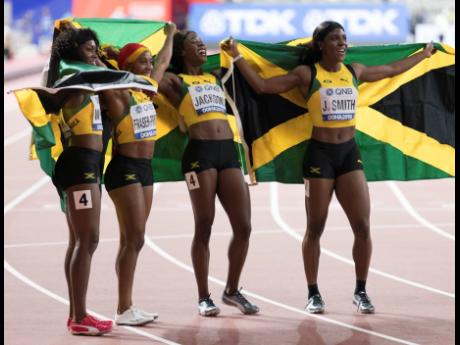JAAA and the need for solid governance - Wehby Report provides road map for the future of local sports administration
TRUE NORTH – THE JOA EXAMPLE
On a bitter cold and dark winter afternoon in February 2016, I sat in the lobby of an Inn in Lillehammer, Norway, with then Jamaica Olympic Association (JOA) General Secretary Christopher Samuda, over some excellent hot chocolate. It was warm and welcome company in that strange place. There I heard for the first time, with the conciseness and clarity of a legal mind, the articulation of arguments in favour of and a plan for the implementation of an enhanced corporate structure for and the professionalisation of the executive of the JOA. I was sold. Arguments may reasonably be had about the efficacy and transparency of the implementation of changes that the now President Samuda and the JOA Board have been elected to oversee as an express part of its manifesto ‘Pathway to Success’. I will not engage those arguments here, but would simply say, as a matter of those inconvenient pests called facts, that the JOA is firmly set in the direction of enhanced governance structures and professionalisation of the executive. True north has been established. Nevertheless, the full work on a national and regional scale remains frustratingly incomplete.
The Wehby Report
The details of and reflections on the Wehby Report have been adequately covered in this newspaper and elsewhere. I wish here only to highlight a few of the more salient points of the report. Pivotal to the direction of the report is the acceptance that some sports are a public good. Such public good sports would include cricket for the West Indies and, for Jamaica, track and field, football, and netball at a minimum. I would also argue that the JOA itself is a public good body. If the idea of a sport as a public good is accepted, then the implications for how the governing bodies for such sports operate are far reaching. These governing bodies would then be subject to a greater duty of governance and transparency to include meeting minutes, if not meeting proceedings to be accessible by the public, clear policies and procedures to which the body may be held to account, public access to contract terms, procurement policies, executive salaries, etc.
Here I choose to reflect primarily on track and field because it is my great love, and as parenting has taught me, we demand more from those we love most. Proceeding from this, the report makes some important recommendations including:
1. The primacy of working closely with stakeholders, including, notably, ensuring ‘cordial relations’ with Governments
2. That board membership should reflect a ‘cross section of the skills and competencies required for carrying out its role.’
3. Directors to be ‘assessed annually by an external qualified body.’
4. Boards ought not to usurp the function of the executives.
5. The need for ‘A smaller and more balanced board.’
6. The ‘ancient concept’ of president and vice-president should be revisited.
7. The introduction of a ‘chairperson and deputy chairperson to become more board specific and clearly non-executive.’
Implicit in the recommendations also is that the changes and structures be actual and not farcical. Many organisations have boards and commissions that are run over roughshod by the president. There is much more, of course, in the report but the tone and direction of what is being asked of sport administrators is clear.
IRRESISTIBLE FORCES AND IMMOVABLE OBJECTS
Science and innovation in the preparation of athletes for performance have undergone Cambrian changes in the last few decades; much of this change led by Jamaican coaching innovators. Jamaica’s track and field administrative and governance structures have remained ‘ancient’. Recall that we are in 2020 and consider this, the Jamaica Athletics Administrative Association (JAAA) is governed by a committee of management made up of a president, four vice-presidents, an honorary secretary, an assistant secretary, an honorary treasurer, a director of the Bureau of Records and eight other members. The JAAA Articles also offer the following gem, ‘Each past president shall be an ex officio member of the committee for life’. That’s a minimum of 18 members of the JAAA’s Committee of Management not counting possible co-opted members. The GraceKennedy Group, the gold standard for corporate governance in the Caribbean, of which one Don Wehby is group chief executive officer, has nine board members.
A committee of management of this size is unavoidably dysfunctional and, therefore, power structures emerge, and in-groups and out-groups are formed and solidified. The committee of management on paper is for public consumption. The next time you hear someone complain about Dr Warren Blake (outgoing JAAA president) being autocratic, stop to consider for a moment that perhaps this is a product of a body that cannot possibly make collective decisions nor effectively challenge the predilections of the president. Our sport administration heroes came to prominence in environments like this. Towering figures such as Teddy McCook and Captain Horace Burrell thrived by imposing their will on a fractious body politic. This type of approach, whose legacy persists, is incongruent with modern sport governance.
In 2000, I ran for president of the JAAA against my friend and mentor Pat ‘Pops’ Anderson and was thoroughly trounced despite being inveigled to run and enthusiastically supported by the Honourable Herb McKenley, and having on my slate such luminaries of Jamaican track and field administration as Ian Forbes, Lincoln Eatmon, and Grace Jackson.
The day after my defeat, I got a call from Howard Aris, the only man I have ever met whose enemies loved him. He explained that I needed to be patient. My time would come. I had put forward a platform of change, which for me meant calling for, among other things, the conversion of the committee of management of 18 persons to a board of directors of under 10 persons, changing the role of president to chairman of that board, professionalising the administration to include converting the honorary secretary position to a paid CEO and the honorary treasurer position to a paid CFO, the rationalisation of committees to establish a mix of sport and business-related committees, and an independent team selection body. This was 20 years ago, before Usain Bolt had won his World Junior medal. Sometimes nothing changes until everything changes.
As I reflect on that experience while reading the Wehby Report and try to reconcile the intransigence of the sport governance structures, borrowing from my breath of experience in economics, organisational design, human and organisational behaviour, it occurs to me that the JAAA and Cricket West Indies (CWI) have proven resistant to change because the existing structures serve the purpose of those who exercise the power to establish these structures. It is not an error, mismanagement or incompetence, it is as it is and has stayed that way for so long because it reflects an optimisation of the relative power of the various stakeholders and their interests. What we see in CWI and the JAAA is a balance of tension between robust competing forces. The fact that they may not serve some wider public good is because such wider good is not well defined, nor can it channel the power to influence structure and governance, or as Howard Aris so plainly put to me in clinically enumerating the various causes of my electoral loss, ‘Chris, you spoke to the public. The public does not vote.’ The searing real politik of that truth was staggering.
The Honourable Gordon Shirley did not have to secure a broad electoral mandate to rise to be chairman of the GraceKennedy Group. His agency incentives are entirely different. The next JAAA president will have to face an electorate and will therefore have to satisfy constituents and interest groups and make compromises in ways that a corporate board chairman does not have to contemplate. Corporate governance theory and application in the sporting context cannot ignore this material difference. A way must therefore be found to deepen both good governance and democratic processes. The Wehby Report comes as close as I have seen to date.
Warren Buffet has famously said, ‘Only when the tide goes out do you discover who’s been swimming naked.’ The pressure to address governance as a driver of sport success is moderated when things are going well on the field of play. This represents an important point of divergence for CWI and the JAAA. CWI is in crisis, standing butt naked on dry land. Answers must be found. On the contrary, track and field in Jamaica is hugely successful domestically and internationally. Track and field is supported primarily in Jamaica by herculean efforts at the primary, prep, and secondary levels for youth athletes and at the club and college level for senior athletes. These bodies justifiably claim paternity for our success in the sport. If the JAAA is swimming naked, the general public does not see and may well not care. Gold trumps governance in the present. Mr Wehby’s case for governance as an enabling factor for its own sake in good or bad times ought, in my opinion, to be widely accepted and specifically embraced by the JAAA. Sooner or later, the tide goes out for all sports.
NEEDLESS BATTLES AND PYRRHIC VICTORIES
As we approach an election in the JAAA, purportedly between the two stalwarts of Garth Gayle and Ian Forbes, we can draw swords and head into battle, or, one evening in the company of Johnny Walker, commit to a remaking of the JAAA along the lines of the Wehby Report, to include specifically, having in place a board chairman, with corporate experience, and a CEO with administrative experience, deep knowledge of the sport, global respect and extensive connections. I am sure such persons may be identified. It would be a process but at this stage, the agreed intention, and a transition framework could be presented to the membership for consideration. If not, then we will once again ‘Cry havoc, and let loose the dogs of war’, have a winner and a loser, and hope that the topic may be revisited in 2040.
- Nelson ‘Chris’ Stokes is an Olympian, sports administrator, development economist, entrepreneur and coach.


